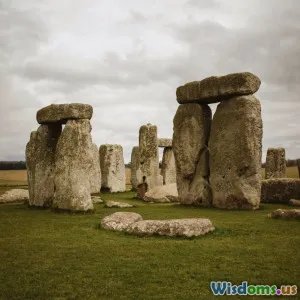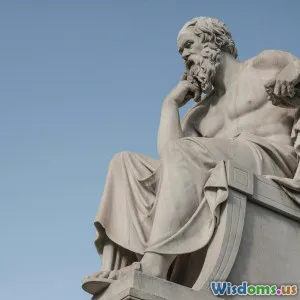
Unveiling Ancient Myths and Their Timeless Lessons
5 min read Explore the enduring wisdom of ancient myths and legends and how they continue to resonate with our lives today. (0 Reviews)
Unveiling Ancient Myths and Their Timeless Lessons
Mythology is a fascinating realm where human imagination intertwines with cultural narratives, creating stories that resonate through generations. From the Greek pantheon of gods to the heroic tales of the Norse, myths serve not just as entertainment but as vessels of wisdom, teaching us about human nature, morality, and the world around us. In this article, we will explore various ancient myths and the timeless lessons they impart, revealing their relevance in our modern lives.
The Role of Myths in Society
Myths have been an integral part of human society since time immemorial. They offer explanations for natural phenomena, provide moral guidelines, and foster a sense of community among people. For instance, many cultures created myths to explain the changing seasons, such as the Greek myth of Demeter and Persephone, which symbolizes the cycle of life and death, as well as the agricultural seasons.
Moral Lessons Embedded in Myths
Many myths contain profound moral lessons that continue to guide individuals today. For example, the story of King Midas, who wished that everything he touched would turn to gold, serves as a cautionary tale about greed. His insatiable desire leads to his downfall, illustrating how the pursuit of wealth can result in loss and suffering.
Similarly, the story of Icarus, who flew too close to the sun with wax wings, teaches us about the dangers of hubris and the importance of humility. These narratives remind us that while ambition is vital, it must be tempered with wisdom and self-awareness.
Cultural Reflection and Identity
Myths also serve as reflections of cultural values and identities. They encapsulate the beliefs and practices of a community, offering insight into their worldview. For instance, the Native American myth of the Great Spirit emphasizes the interconnectedness of all living things, promoting a deep respect for nature. This reverence for the environment is not only a cultural tenet but also a timely reminder of our responsibility towards preserving the planet today.
Myths and Psychological Insights
Carl Jung, a prominent psychologist, argued that myths tap into the collective unconscious, reflecting universal themes and archetypes. The hero's journey, for example, is a common motif across cultures, representing personal growth and transformation. Stories like that of Hercules or the Buddha illustrate how challenges can lead to self-discovery and enlightenment. These narratives encourage us to confront our inner struggles and emerge stronger.
Modern Applications of Mythical Lessons
In today's fast-paced world, the lessons drawn from ancient myths are more relevant than ever. They can provide guidance in navigating life's complexities, helping us to develop empathy, resilience, and moral clarity. For instance, the hero's journey can be applied to personal development strategies, motivating individuals to pursue their goals despite obstacles.
Additionally, businesses often draw on mythological themes to create powerful branding narratives that resonate with consumers. By aligning their values with the heroic journeys found in myths, companies create deeper connections with their audiences.
Conclusion
In conclusion, ancient myths and legends are not merely relics of the past; they are valuable sources of wisdom that offer timeless lessons relevant to our lives today. By exploring these narratives, we gain insights into human nature, morality, and our place in the world. As we navigate the complexities of modern life, the ancient stories remind us of the universal truths that bind us together, encouraging us to reflect on our values and actions. So, the next time you encounter a myth, remember that it carries with it lessons that transcend time and culture, waiting to be unveiled and applied in our lives.
Rate the Post
User Reviews
Popular Posts





















